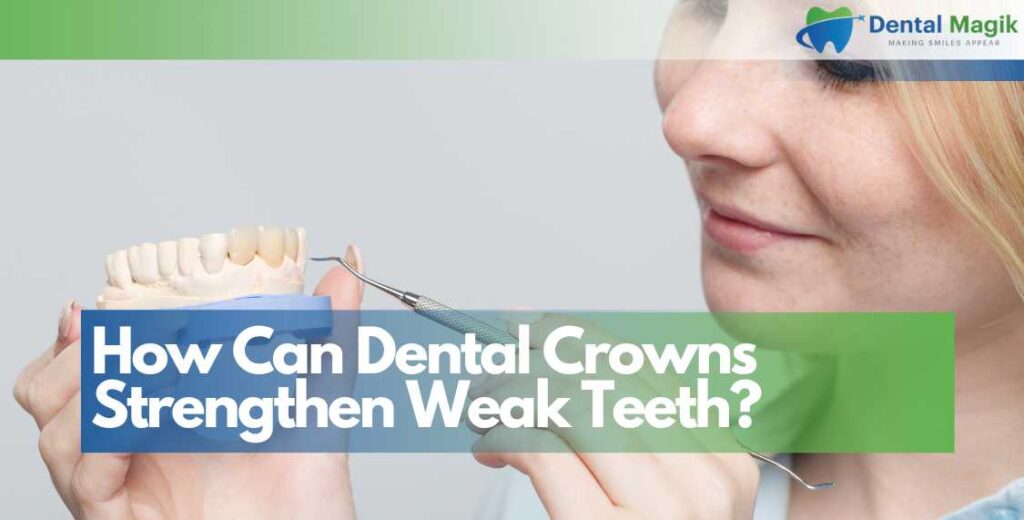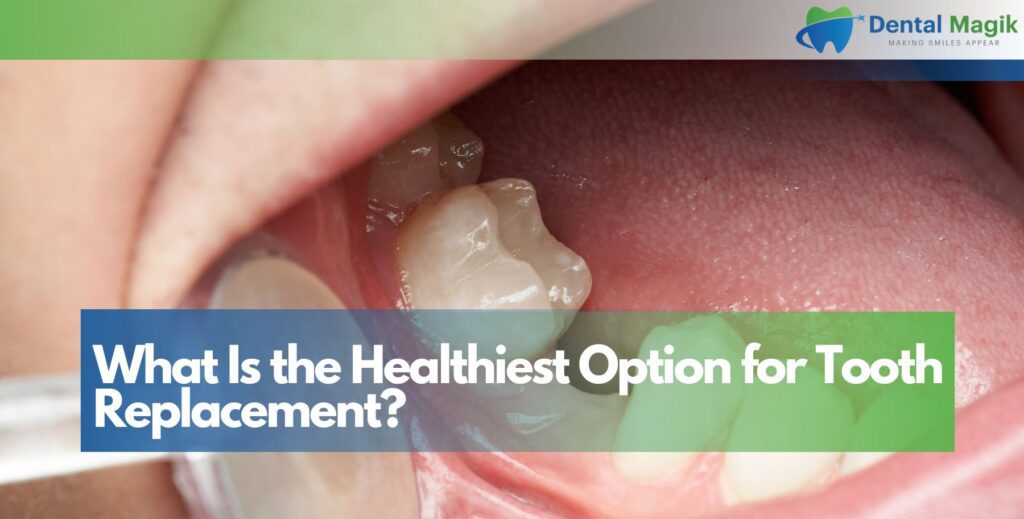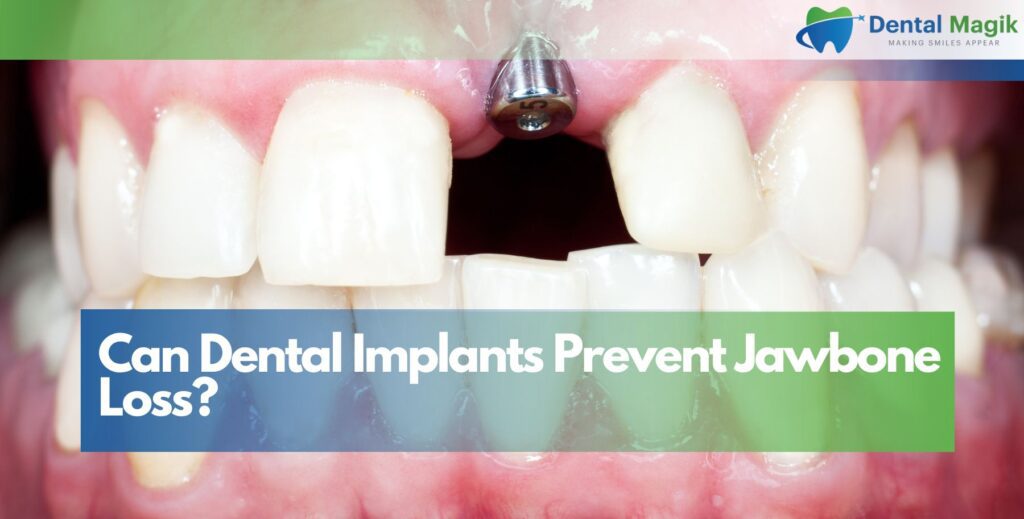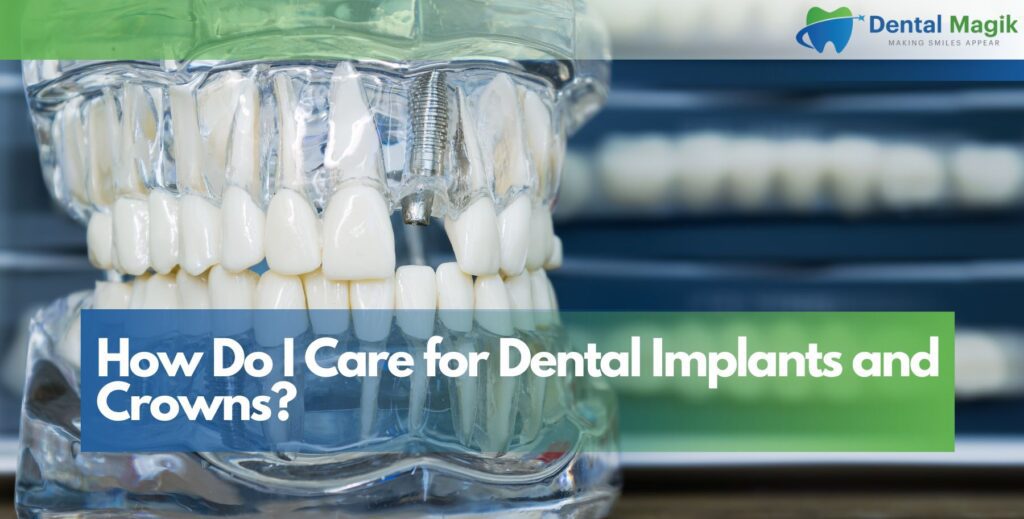A dental crown is a versatile dental restoration that can be used for a variety of purposes, one of which is to strengthen weak or damaged teeth. Weak teeth, whether due to decay, fractures, or general wear, can significantly affect your ability to chew, speak, and smile confidently. Dental crowns are custom-made caps that cover the tooth entirely, restoring its shape, function, and appearance.
What Are Dental Crowns?
Dental crowns are protective coverings that are placed over a weakened tooth. They are designed to restore the tooth’s original shape, size, and function while providing additional strength. Crowns can be made from various materials, including porcelain, metal, ceramic, and composite resin. Your dentist will help you choose the best material based on your specific needs, such as the location of the tooth and your aesthetic preferences.
The procedure for placing a dental crown typically involves several steps. First, the tooth is prepared by removing any decayed or damaged portions. Then, an impression of the tooth is taken to create a custom crown. Once the crown is fabricated, it is placed over the tooth, restoring its strength and functionality.
Why Are Dental Crowns Important for Weak Teeth?
Teeth can become weak for a variety of reasons. Some common causes of weak teeth include:
- Tooth Decay: Extensive tooth decay can weaken the structure of the tooth, making it prone to breaking or chipping.
- Fractures or Cracks: Accidents or trauma can cause cracks or fractures in teeth, compromising their strength.
- Worn Enamel: Enamel erosion due to age, grinding, or acidic foods can make teeth more vulnerable to damage.
- Large Fillings: Teeth with large fillings are often more fragile and may require a crown to protect them from further damage.
- Root Canal Treatment: After a root canal, a tooth becomes more brittle and is at a higher risk of fracture. A dental crown can help restore its strength.
A dental crown strengthens a weak tooth by encasing it in a durable, hard material, which prevents further damage and restores the tooth’s ability to withstand daily pressures like chewing and biting. Crowns are especially beneficial for teeth that have undergone significant damage or wear, offering a long-term solution that protects your smile and improves overall oral health.
How Do Dental Crowns Strengthen Weak Teeth?
Dental crowns strengthen weak teeth in several ways. Below are the key benefits of using dental crowns to reinforce damaged or weakened teeth:
Protection Against Further Damage
Once a tooth becomes weak due to decay or fractures, it’s more susceptible to further damage. A dental crown provides a protective barrier that shields the tooth from external forces. This is especially important for teeth that are used for heavy chewing, such as molars, as they endure significant pressure during daily activities like eating.
Restores Functionality
A weakened tooth may not function properly, which can make it difficult to chew food effectively. When a crown is placed, it restores the tooth’s shape and size, allowing it to function like a healthy, natural tooth. This improvement in functionality helps reduce discomfort and difficulty when eating, providing a significant boost to your overall oral health and well-being.
Enhances Aesthetic Appearance
For teeth located in the front of the mouth, aesthetics are a major consideration. Dental crowns, particularly those made from porcelain or ceramic, can be designed to blend seamlessly with the rest of your teeth. This makes crowns a great option for restoring weak teeth while also enhancing the appearance of your smile.
Prevents Further Tooth Loss
When a tooth is weakened, the risk of tooth loss increases. Left untreated, a weak tooth can eventually become so damaged that it must be extracted. A dental crown helps preserve the tooth, preventing the need for extraction and reducing the likelihood of more complex treatments in the future, such as dental implants or bridges.
Supports Teeth After Root Canal Treatment
After undergoing a root canal, a tooth often becomes more brittle and vulnerable to fracture. Dental crowns are commonly used after root canal procedures to provide added strength and protect the tooth from future damage. Crowns also help restore the tooth’s natural appearance, ensuring that it blends in with the surrounding teeth.
The Benefits of Dental Crowns for Weak Teeth
When it comes to strengthening weak teeth, dental crowns offer several benefits that make them a preferred treatment option for both cosmetic and functional reasons. Here are some of the key advantages of getting a dental crown to reinforce a weak tooth:
Increased Strength and Durability
One of the main benefits of dental crowns is their ability to increase the strength and durability of weakened teeth. Whether your tooth is cracked, decayed, or worn down, the crown encapsulates the entire tooth, providing protection and preventing it from breaking or further deteriorating. This is particularly important for molars or teeth that are subject to heavy chewing pressure.
Long-Lasting Solution
Dental crowns are designed to be long-lasting, providing protection and durability for many years. With proper care, dental crowns can last anywhere from 10 to 15 years or more. The longevity of crowns depends on factors such as the material used, how well you maintain your oral hygiene, and the location of the crown.
Improved Aesthetic Appearance
A weakened tooth doesn’t just affect functionality; it can also impact the appearance of your smile. Dental crowns, especially those made from materials like porcelain and ceramic, can be designed to match the natural color and shape of your teeth. This makes them ideal for restoring front teeth that are more visible when you smile. With a crown, you can improve both the strength and the look of your teeth.
Prevents Sensitivity
Weak teeth can often become sensitive to hot and cold temperatures due to exposed nerves or enamel loss. By placing a crown on the affected tooth, you protect the sensitive areas and prevent discomfort when consuming hot or cold foods and beverages. This added layer of protection helps you enjoy your favorite foods without worrying about sensitivity.
Enhances Chewing and Biting Ability
Weakened teeth can make chewing difficult or painful, limiting your diet and eating habits. A dental crown restores the tooth’s structure, allowing you to bite and chew with ease. This is especially beneficial for molars, which play a crucial role in the chewing process.
Customizable Fit and Comfort
Crowns are custom-made to fit your tooth, ensuring that they sit comfortably and securely. The process involves taking an impression of your tooth, which is then used to create a crown that matches the size and shape of your natural teeth. This personalized approach ensures that the crown feels as comfortable as possible and blends seamlessly with your other teeth.
Protection from Decay and Future Damage
When a tooth is weak due to decay, it is vulnerable to further damage. A dental crown protects the tooth from external factors that can worsen the condition, such as bacteria, food particles, and even physical trauma. Additionally, crowns help seal the tooth, preventing further decay from developing beneath the restoration.
Minimal Maintenance
Once placed, dental crowns require minimal maintenance, making them a convenient solution for patients with weak teeth. While you still need to maintain regular oral hygiene practices, such as brushing and flossing, there’s no need to worry about replacing or repairing the crown frequently. With proper care, dental crowns can provide long-term protection and strength for weakened teeth.
Versatility for Various Dental Issues
Dental crowns are not just limited to reinforcing weak teeth. They can also be used to address other dental problems, such as covering a large filling, restoring a fractured tooth, or even improving the appearance of misshapen teeth. This versatility makes crowns an excellent choice for patients with a variety of dental concerns.
Different Types of Dental Crowns
There are several types of dental crowns, each with its own advantages and suitability for different situations. Your dentist will discuss the best option based on your needs, the location of the weak tooth, and your preferences.
Porcelain Crowns
Porcelain crowns are popular for restoring front teeth because they can be made to closely resemble the natural appearance of teeth. They are durable, stain-resistant, and provide excellent strength for weak teeth. However, porcelain crowns may not be as strong as metal crowns and can sometimes be more prone to chipping, making them better suited for front teeth or low-stress areas.
Metal Crowns
Metal crowns are known for their strength and durability. They are typically made from alloys such as gold or silver, which can withstand heavy chewing and grinding forces. While metal crowns may not offer the same aesthetic appeal as porcelain, they are ideal for back teeth, where functionality is more important than appearance.
Ceramic Crowns
Ceramic crowns are a blend of materials that offer a balance between strength and aesthetics. Ceramic crowns are strong and provide a natural appearance, making them a good choice for teeth in both the front and back of the mouth. They are also a great option for individuals with metal allergies.
Resin Crowns
Resin crowns are less commonly used, but they can be an affordable option for strengthening weak teeth. While they are not as durable as porcelain or metal crowns, they are still effective at providing protection and improving the appearance of weakened teeth. Resin crowns are typically used for temporary restorations or less critical areas of the mouth.
Zirconia Crowns
Zirconia crowns are a newer option that combines the strength of metal with the aesthetic appeal of porcelain. Zirconia is incredibly durable, making it an excellent choice for restoring weak teeth in both the front and back of the mouth. They are resistant to chipping and staining, providing a long-lasting solution for damaged teeth.
The Procedure for Getting a Dental Crown
The process of getting a dental crown typically involves two visits to the dentist. Here’s what you can expect during the procedure:
Diagnosis and Preparation
During the first visit, your dentist will evaluate the condition of the weak tooth to determine if a crown is necessary. If the tooth is severely decayed or damaged, it will be cleaned and reshaped to prepare for the crown. Your dentist will take an impression of the tooth to create a custom crown that fits perfectly.
In some cases, a temporary crown may be placed while the permanent crown is being fabricated. This ensures that your tooth is protected while the final crown is being made in the dental laboratory.
Crown Placement
Once your custom crown is ready, you will return to the dentist’s office to have it placed. The dentist will remove the temporary crown and check the fit of the permanent one. If everything looks good, the crown will be cemented onto your tooth, restoring its strength and appearance.
Cost of Dental Crowns
The cost of a dental crown varies depending on several factors, including the material used, the complexity of the procedure, and your geographic location. On average, dental crowns can range from $800 to $3,000 per tooth. However, dental insurance may cover a portion of the cost, especially if the crown is deemed medically necessary.
If you’re concerned about the cost, many dental offices offer payment plans or financing options to help make the procedure more affordable.
Conclusion
Dental crowns are an excellent option for strengthening weak teeth, offering a solution that restores both functionality and aesthetics. Whether your teeth are weakened by decay, fractures, or other factors, crowns provide a protective shield that prevents further damage while improving your ability to chew, speak, and smile confidently.
If you’re dealing with a weakened tooth, consult with a trusted dentist to determine if a dental crown is right for you. The right crown can make a significant difference in your oral health, enhancing both the strength and appearance of your teeth.
For professional dental care, visit Dental Magik, your trusted local Dentist in East Brunswick, NJ, where we specialize in providing high-quality Dental crowns and other restorative treatments to ensure your smile stays healthy and strong. Contact us today to schedule your consultation.







